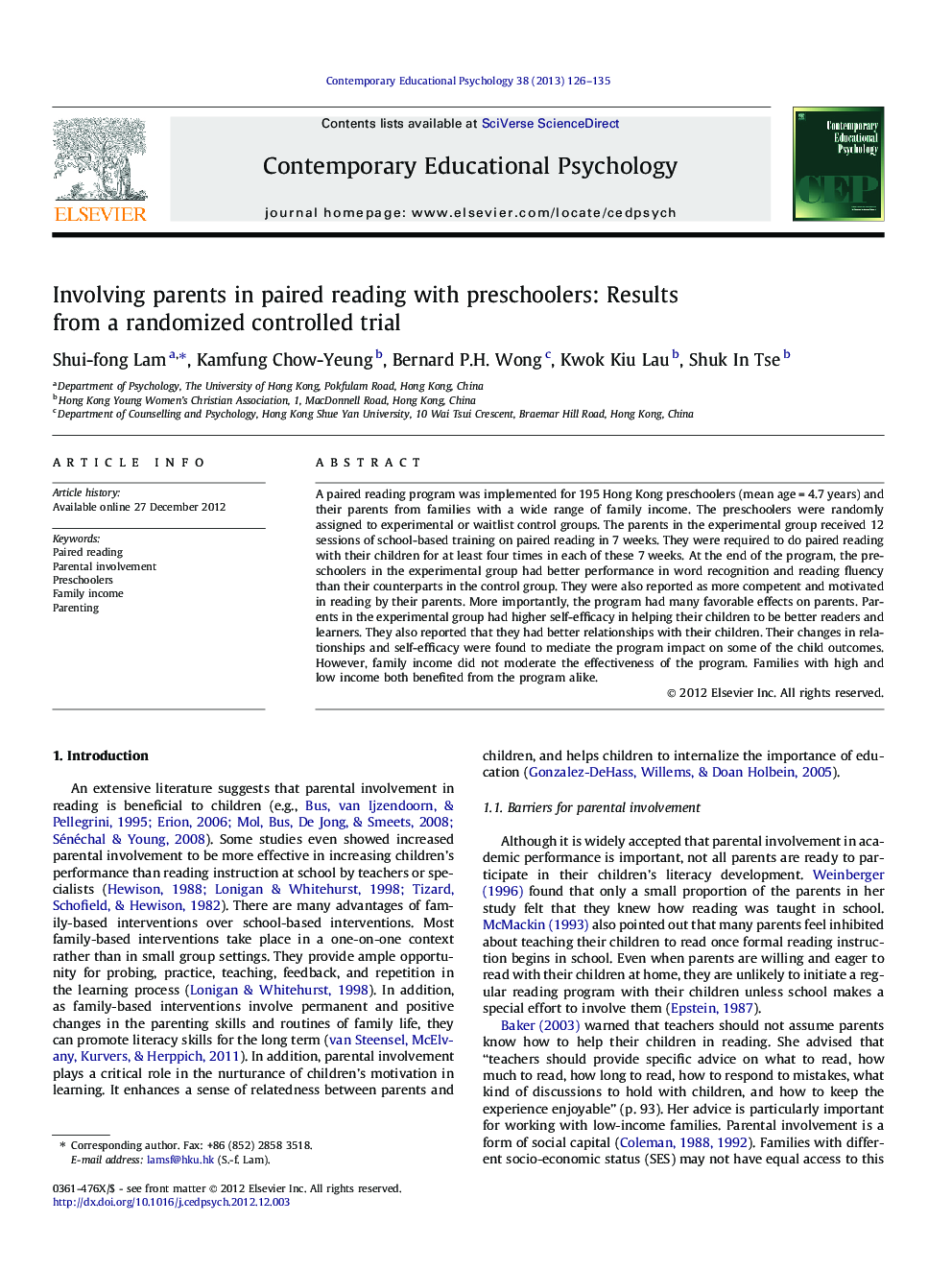| Article ID | Journal | Published Year | Pages | File Type |
|---|---|---|---|---|
| 352630 | Contemporary Educational Psychology | 2013 | 10 Pages |
A paired reading program was implemented for 195 Hong Kong preschoolers (mean age = 4.7 years) and their parents from families with a wide range of family income. The preschoolers were randomly assigned to experimental or waitlist control groups. The parents in the experimental group received 12 sessions of school-based training on paired reading in 7 weeks. They were required to do paired reading with their children for at least four times in each of these 7 weeks. At the end of the program, the preschoolers in the experimental group had better performance in word recognition and reading fluency than their counterparts in the control group. They were also reported as more competent and motivated in reading by their parents. More importantly, the program had many favorable effects on parents. Parents in the experimental group had higher self-efficacy in helping their children to be better readers and learners. They also reported that they had better relationships with their children. Their changes in relationships and self-efficacy were found to mediate the program impact on some of the child outcomes. However, family income did not moderate the effectiveness of the program. Families with high and low income both benefited from the program alike.
► A paired reading program was implemented for Chinese preschoolers and parents. ► The program improved the preschoolers’ performance and motivation in reading. ► It also increased parent–child relationship and parents’ self-efficacy in parenting. ► Parent–child relationships and parents’ self-efficacy had some mediation effects. ► Families from high and low income benefited from the program alike.
